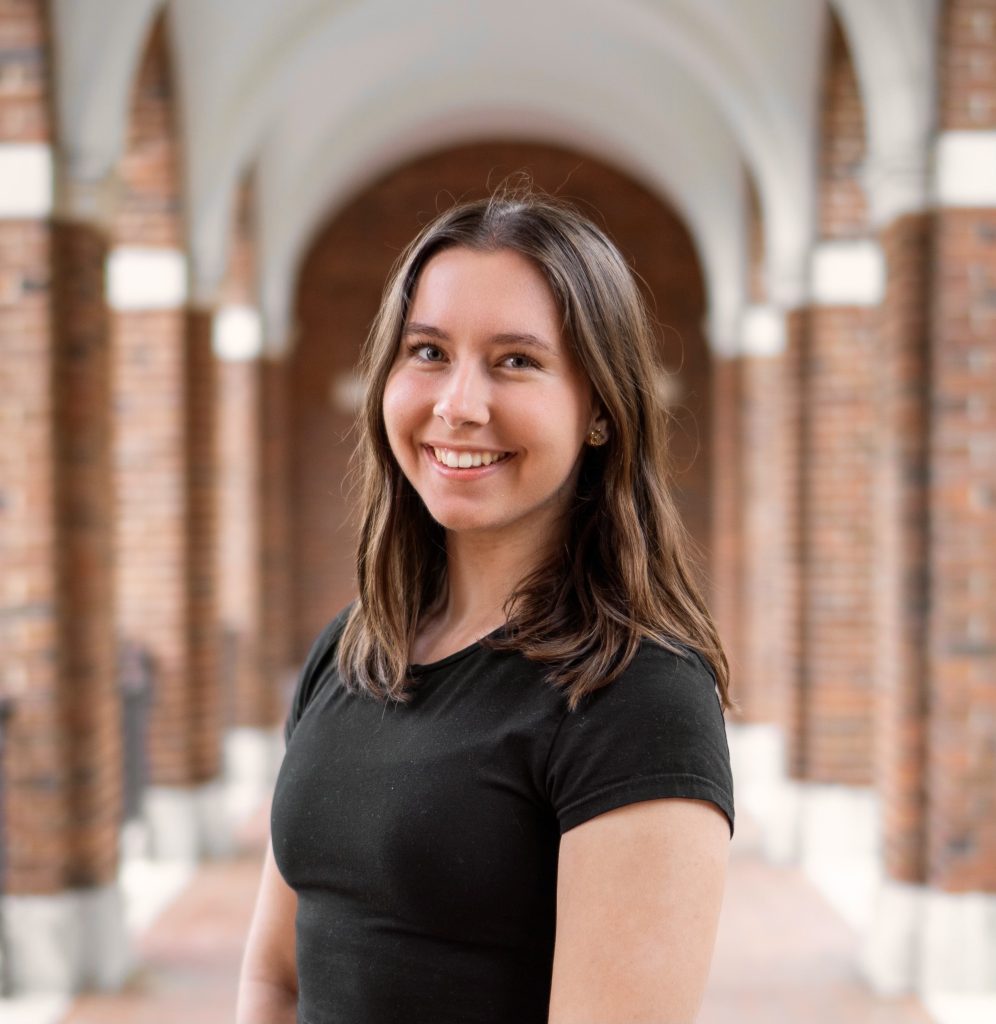
Computer science students who received departmental and school honors were recognized at the annual Computer Science Awards Ceremony on Thursday, May 4.
Associate Professor Abhishek Jain, PhD candidate Catalina Gomez Caballero, and master’s students Simon Kutner Allocca and An Chi Chen received the Joel Dean Excellence in Teaching Award; initiated by Joel and Monia Dean with the objective of promoting excellence in undergraduate education, this annual award recognizes faculty and graduate students who have exhibited extraordinary performance in teaching undergraduates. Department head Randal Burns praised Professor Jain’s ability to make difficult material accessible, while Assistant Professor Mathias Unberath commended Caballero as “an exceptionally helpful, attentive, and skilled instructor.” Chen and Alloca were lauded for their contributions to keeping morale high, arranging team meetings, and volunteering for additional responsibilities as course assistants.
Max Hahn and Alexandra Szewc won the Neuhauser Family Undergraduate Teaching Award in Honor of Dr. S. Rao Kosaraju, which recognizes outstanding undergraduate computer science teaching assistants; the fourth-year undergraduates were praised for their efforts in organizing additional office hours and meetings for the students taking their courses.
This year’s Michael J. Muuss Research Award, established in honor of the late 1979 Hopkins graduate of the same name, was given to fourth-year undergraduate Jingyu “Jack” Zhang for his application of computer science research to real-world practice. Zhang previously received a Pistritto Fellowship to study the intersection of social media analysis and natural language generation. After graduation, he plans to pursue a PhD in computer science, working with Hopkins faculty Daniel Khashabi and Benjamin Van Durme.
The Most Valuable Peer Award was presented to fourth-year Christopher Wilhelm and second-year Yidong “Owen” Song for their contributions to the undergraduate CS community and overall departmental spirit. Wilhelm’s peers described him as “a leader—kind, generous, and resilient,” while Song was lauded by his classmates as “the most helpful and enthusiastic peer I have ever had.”
The Special Service Award is given to students who have performed outstanding work to benefit the Department of Computer Science, the university, and the community; the 2023 recipients are fourth-year undergraduates Chinat Yu and Shreya Wadhwa. Described as “a force for good in the department,” 2022 Pistritto Fellow Yu has organized hackathons, co-founded the educational augmented reality platform Quest2Learn, and launched the Hopkins Hacks podcast. Wadhwa, “an amazing representative” of the student body and previous recipient of a Provost’s Undergraduate Research Award, has demonstrated her leadership skills by serving as president of Women in Computer Science, the official ACM-W chapter at Johns Hopkins.
This year’s CS+X Award was presented to Pameli Li and Sicen “Susan” Liu for their outstanding achievements in combining diverse studies with computer science; after graduation, both fourth-year undergraduates are pursuing opportunities in industry that utilize their unique backgrounds in psychology and cognitive science, respectively.
Finally, the Outstanding Senior Award was awarded to James Wang and Qinyuang “Olivia” Wu in acknowledgment of their academic excellence, leadership, and service; they were additionally applauded for their outstanding work on Semester.ly and uCredit, respectively—student-run applications that directly benefit the greater Hopkins community.
Additionally, second-year undergraduate Madeline Estey has been announced as the 2023-2024 Pistritto Fellow. The Pistritto Fellowship funds collaboration between students and faculty sponsors in the Department of Computer Science; the resulting summer-long intensive research experience aims to position fellows to conduct cutting-edge research in the area of information visualization.

2023 Pistritto Fellow Madeline Estey.
Estey plans to continue her research on data-oblivious computation for Python machine learning algorithms. She developed her interest in protecting against data leakage during her internship at MITRE in the summer of 2022.
“I am fascinated with how supposedly secret data can be revealed with the help of electromagnetic radiation, power consumption, timing, and more,” she says. “My application of data-oblivious programming to the field of machine learning will allow scientists to collaborate with each other to do data science and visualization without leaking information to adversaries.”